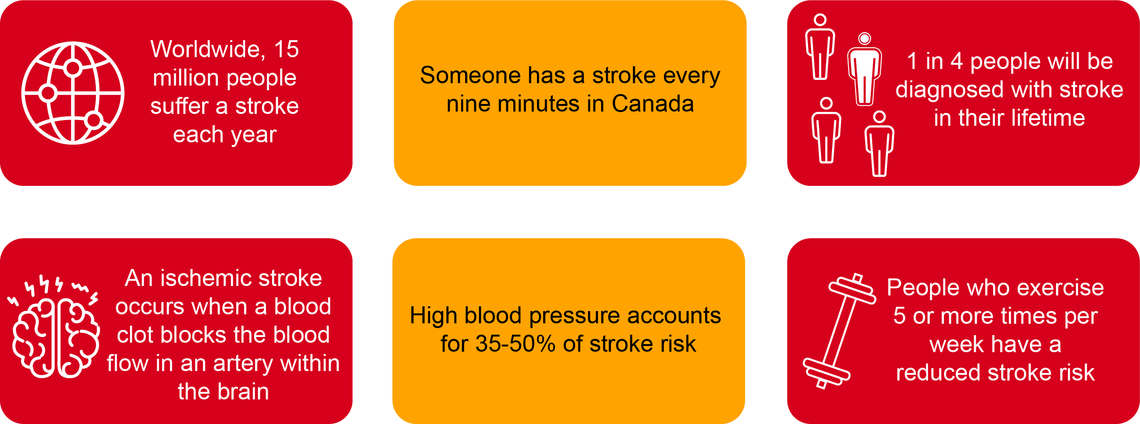What is Stroke?
A stroke is caused when the blood supply to part of the brain is interrupted or reduced, causing brain tissue to stop receiving oxygen and nutrients. When the blood supply is interrupted, brain cells begin to die in minutes.
The Stroke team at the Hotchkiss Brain Institute is a part of the Calgary Stroke Program – an international leader in stroke research and care. Team members include clinician-scientists, imaging and computer scientists, basic scientists, engineers, statisticians, epidemiologists, and management experts. The stroke team’s research focuses on delivering the most recent and cutting-edge innovation in acute stroke diagnosis and treatment to patients with stroke.
If you would like to contribute to further research on stroke causes and treatments, please visit our donation page.
The HBI collaborates with the Calgary Stroke Fellowship Program. The program has evolved into one of the premier programs for subspecialty training in stroke, internationally, and has been the hallmark of the Calgary Stroke Program's success. Learn More
For more information on UCalgary stroke research, please visit the Cumming School of Medicine stroke page. CSM Stroke
Quick Facts

Research Highlights
- New ways of interpreting diagnostic imaging results
Association of clinical, imaging, and thrombus characteristics with recanalization of visible intracranial occlusion in patients with acute ischemic stroke. Read the full study in JAMA here. - Women less likely to be diagnosed with stroke
Sex differences in presentation and outcome after an acute transient or minor neurologic event. Read the full study in JAMA Neurology here. - Researchers develop new tool to assess stroke treatment
Dynamic CTA-derived perfusion maps predict final infarct volume: The simple perfusion reconstruction algorithm. Read the full article in the American Journal of Neuroradiology here.








